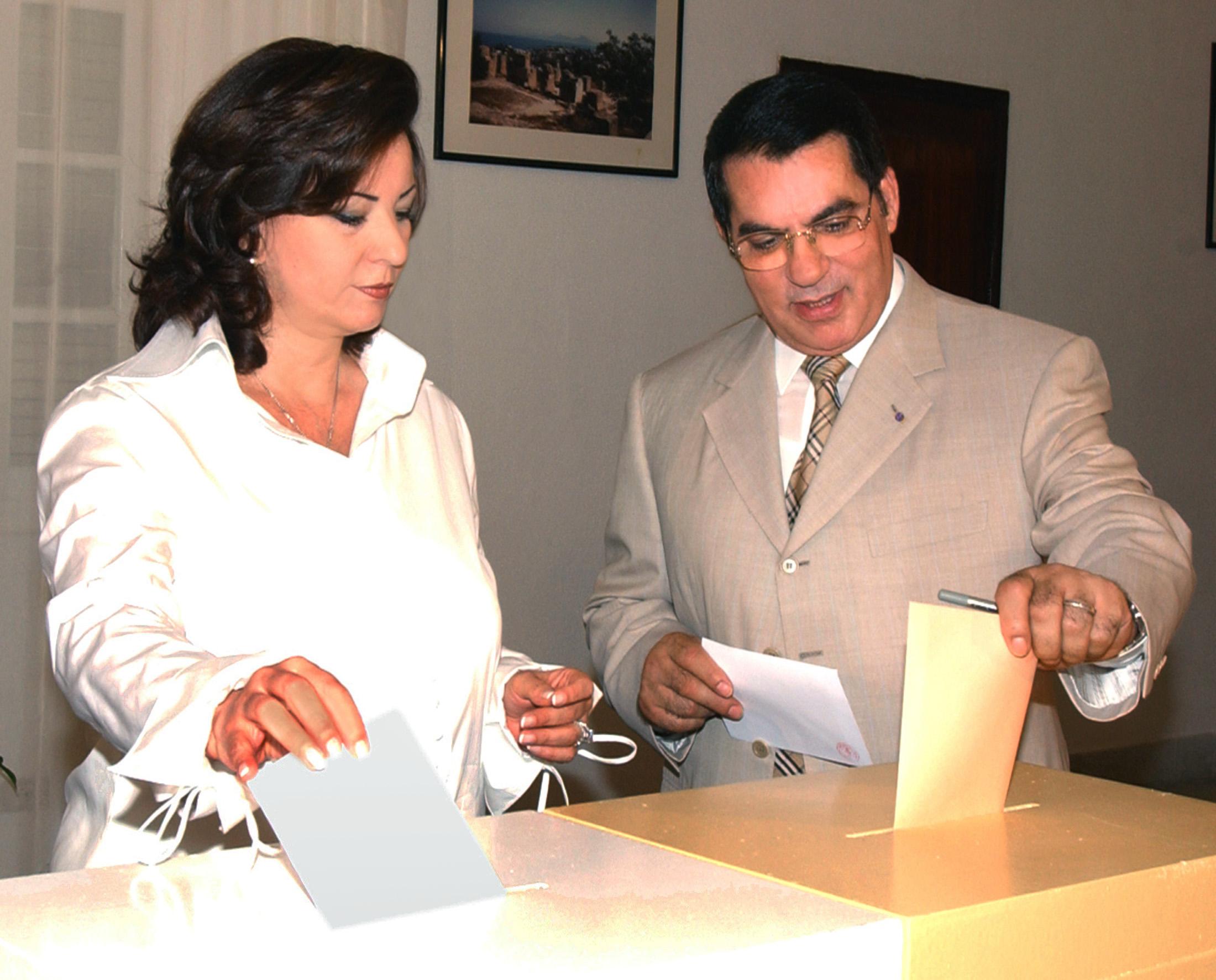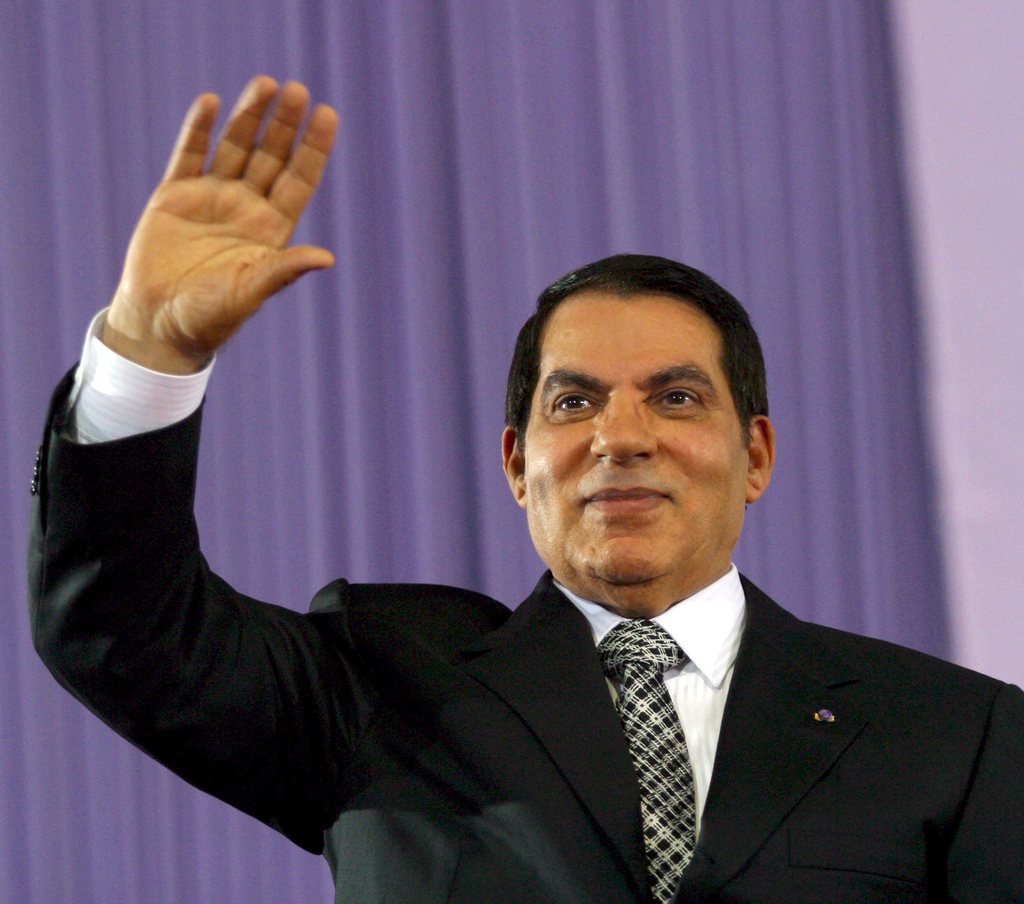The complex case of Tunisia’s blocked funds

Four years after the fall of Tunisian dictator Zine el-Abidine Ben Ali, the country is still chasing the fortunes stolen by the disgraced leader and his entourage.
In the wake of the Tunisian revolution – following a Tunisian request for mutual legal assistance and pending a federal criminal investigation – the Swiss government froze some CHF60 million ($61.75 million) suspected of being “laundered” or gained via “participation in a criminal organisation”. The Swiss investigation named 48 members of the Ben Ali clan, including businessman Belhassen Trabelsi, brother of the dictator’s wife Leïla. Trabelsi has since been convicted in absentia of criminal activity several times in Tunisia.
Last April, the Federal Prosecutor’s Office (FPO) ordered the early return of some $40 million of Trabelsi’s funds to Tunisia, having ruled that the criminal origin of the funds had been “sufficiently established”. But after the order was overturned on appeal last December by the Federal Criminal Court in Bellinzona, which found that Trabelsi’s right to be heard had been violated, Swiss lawyers for Tunisia have criticised the prosecutor’s office for a “lack of diligence”.
To date, just two planes, two yachts and $28 million held in Lebanon by Leïla Trabelsi have been recovered. It’s a meagre result after a report published last month by the World Bank concluded that the corrupt former dictator manipulated the law to serve his own interests – and those of his entourage – to the point that he controlled more than 21% of the profits generated by Tunisia’s private sector at the end of 2010.
At a standstill
Yves Klein, a lawyer acting on behalf of the Tunisian government, says the investigation into the origin of the blocked funds is moving too slowly.
“Nothing has happened for a year and a half. To determine the origins of Belhassen Trabelsi’s funds, one needs to go to Tunisia and work with the local authorities. But the prosecutor in charge of the case has been just once in four years. To say that we are disappointed is an understatement,” says Klein.
A spokeswoman for the FPO, Jeannette Balmer, says the investigation, both locally and in collaboration with Tunisia, will continue.
“The FPO has taken note of these decisions and will recommence proceedings […] with a view to determining with more precision, the origin of these funds,” says Balmer. “In itself, the decision [of the Federal Criminal Court] does not call into question either the legal right or the willingness of the FPO to return the funds in question to Tunisia. The prosecutor will continue the investigation and schedule hearings.”
Meanwhile, Trabelsi’s Geneva-based lawyer, Jean-Marc Carnicé, maintains the funds blocked by Switzerland were legitimately earned by his client and accuses the FPO of failing to examine the evidence.
“I presented arguments which aimed to demonstrate that the funds […] are legitimate and not the result of criminal activities,” says Carnicé. “I have contracts, documents that show which commercial activities generated that money. These items were not examined by the prosecutor. Have they been yet? I don’t know.”
Sources say the prosecutor in charge of the case at the FPO is set to leave his post soon, a move that would perhaps see the case advance more quickly in the future. Balmer declined to confirm this information, or reveal whether a successor had been nominated.
Swiss willingness
In a diplomatic context, the Swiss position remains unchanged. In March, Switzerland’s ambassador to Tunisia, Rita Adam, and Tunisia’s new justice minister Mohamed Salah Ben Issa met and “confirmed our willingness to work together”, according to Adam.
“The political will to return this money to Tunisia is intact, as long as it has been established that these funds have criminal origins,” says Adam. “The funds are blocked to allow justice to take its course. These are very complex investigations, which take time. The appeals, in themselves, are perfectly normal in a state of law.”
Mouheb Garoui, director of IWatch, a Tunisian association formed in the wake of the revolution to fight corruption and advocate transparency, says it is not the Swiss cooperation – “the best, along with France” – that poses a problem, but “the total absence of political will” in Tunisia.
“There is no strategy. We don’t know who does what. The mandate of the National Committee to Recover Stolen Assets ended in March in general indifference,” says Garoui. “During this time, the country is borrowing money from the European Union and the International Monetary Fund. The Tunisian judges, they are doing the most they can with the means available to them, given that this is a new area for Tunisia.”
Garoui recognises that in the end, the case is a “technical” process, but he nonetheless appeals to Switzerland to boost its support.
“The Swiss judges must come to Tunisia to meet the people and understand the mediocre situation in certain regions,” he says. “The people will tell them that they need this money. The support of the Swiss is necessary, especially during this transition phase.”
Changing strategy
With future appeals on the cards, it seems unlikely that the funds blocked by the Swiss government will be returned to Tunisia in the near future. In the meantime, lawyers for Tunisia have turned their attention to those who accepted money presumed to have criminal origins. On March 19, the country formally asked to join the Geneva prosecutor’s money-laundering case against HSBC Switzerland, which was opened in February in the wake of the SwissLeaks affair which rocked the bank.
Tunisia is claiming CHF114.5 million plus interest from the bank for having accepted the fortune of Belhassen Trabelsi. This amount, which was determined by the lawyers on the basis of known information in the context of the federal criminal case, corresponds to funds which transited Trabelsi’s accounts at HSBC and commissions earned by the bank which have been evaluated at two percent of the funds managed, or some CHF8.4 million.
“The acts committed at the heart of HSBC are just as serious because they took place between 2006 and 2011, when the corruption that reigned in Tunisia under the Ben Ali-Trabelsi clan was not only notorious, but had been specifically signalled to management by the bank’s own compliance process,” says the complaint filed by lawyers acting for Tunisia. HSBC declined to comment.
Compared to other nations, Switzerland has applied a “progressive and proactive” policy for years when it comes to returning the funds stolen by dictators, says Gretta Fenner, director of the Basel Institute on Governance, an independent not-for-profit organisation which fights corruption and financial crime. Fenner says the new law currently being debated in parliament is “innovative” compared with other legislation.
“The political commitment has been strong for many years, starting with Marcos [the former leader of the Philippines whose fortune was returned in 2003, after 17 years of legal proceedings] almost 25 years ago. This case made them understand that asset recovery is a topic they have to take seriously and that it’s in the Swiss interest to actively work towards recovery of stolen assets,” says Fenner.
“Unfortunately there are still way too few countries who do even half as much as Switzerland. Switzerland doesn’t have tough competition when it comes to asset recovery. Or in other words, it’s easy to be best in class in view of the really poor competition.”
(Translated from French by Sophie Douez)

In compliance with the JTI standards
More: SWI swissinfo.ch certified by the Journalism Trust Initiative











You can find an overview of ongoing debates with our journalists here . Please join us!
If you want to start a conversation about a topic raised in this article or want to report factual errors, email us at english@swissinfo.ch.